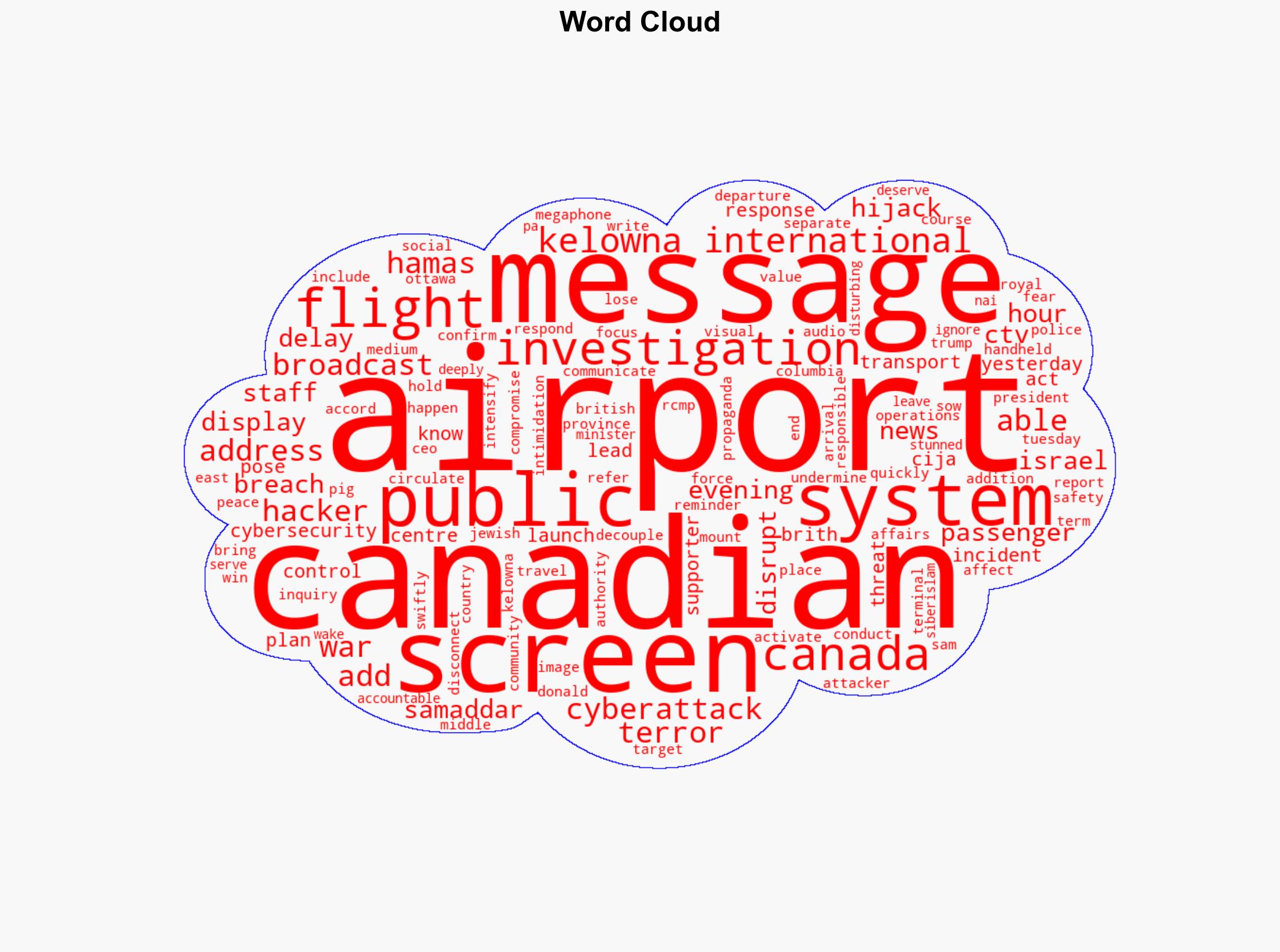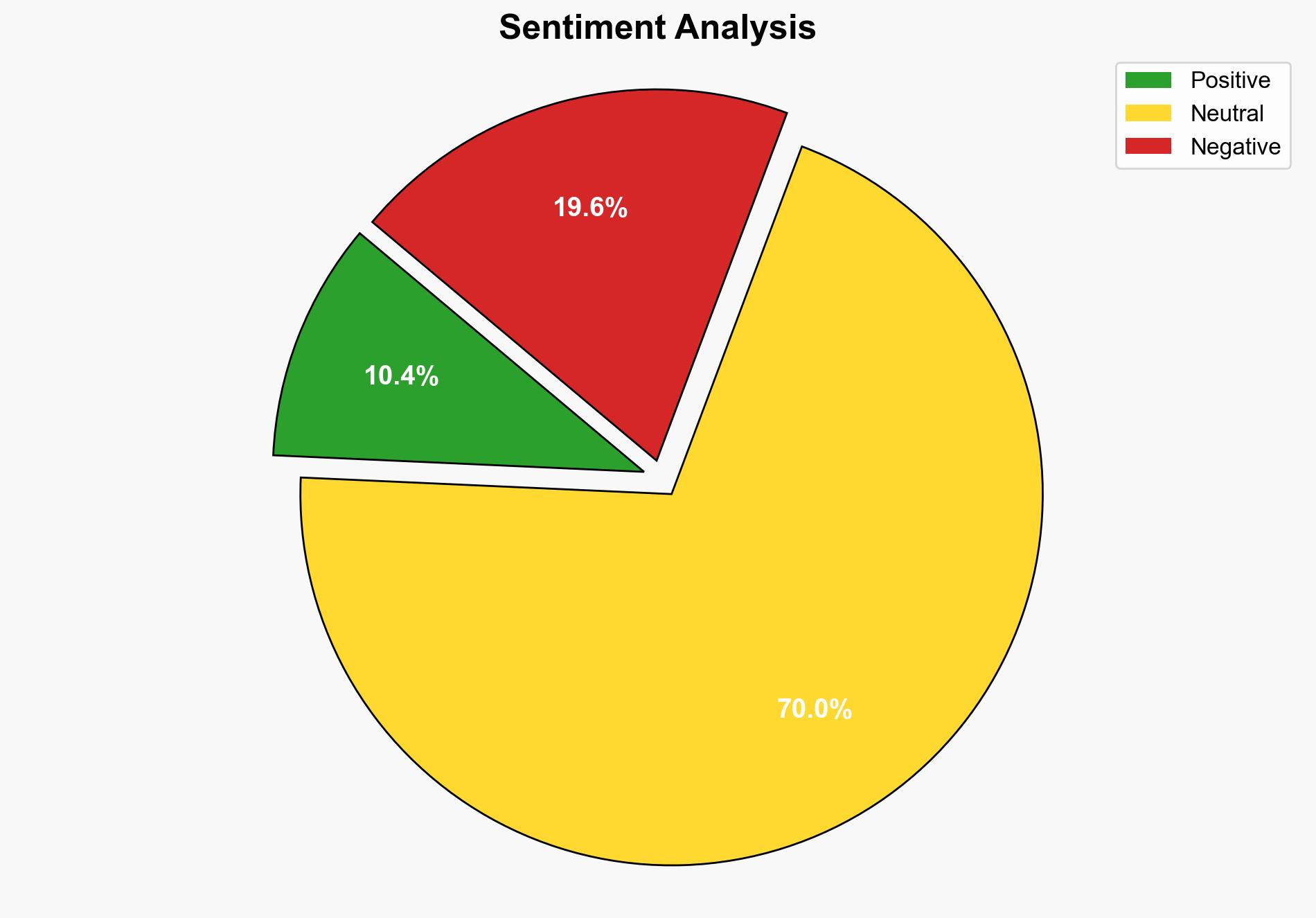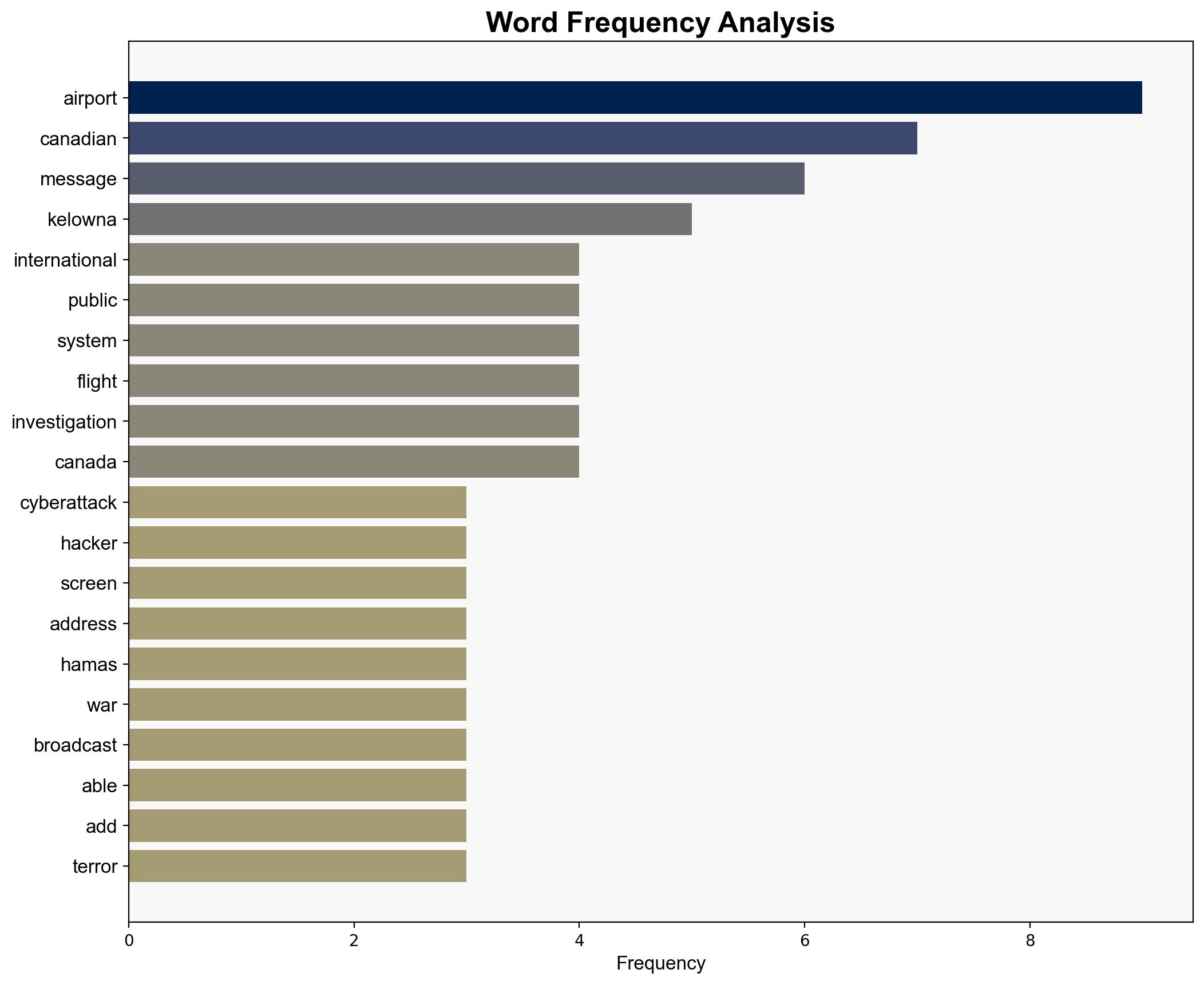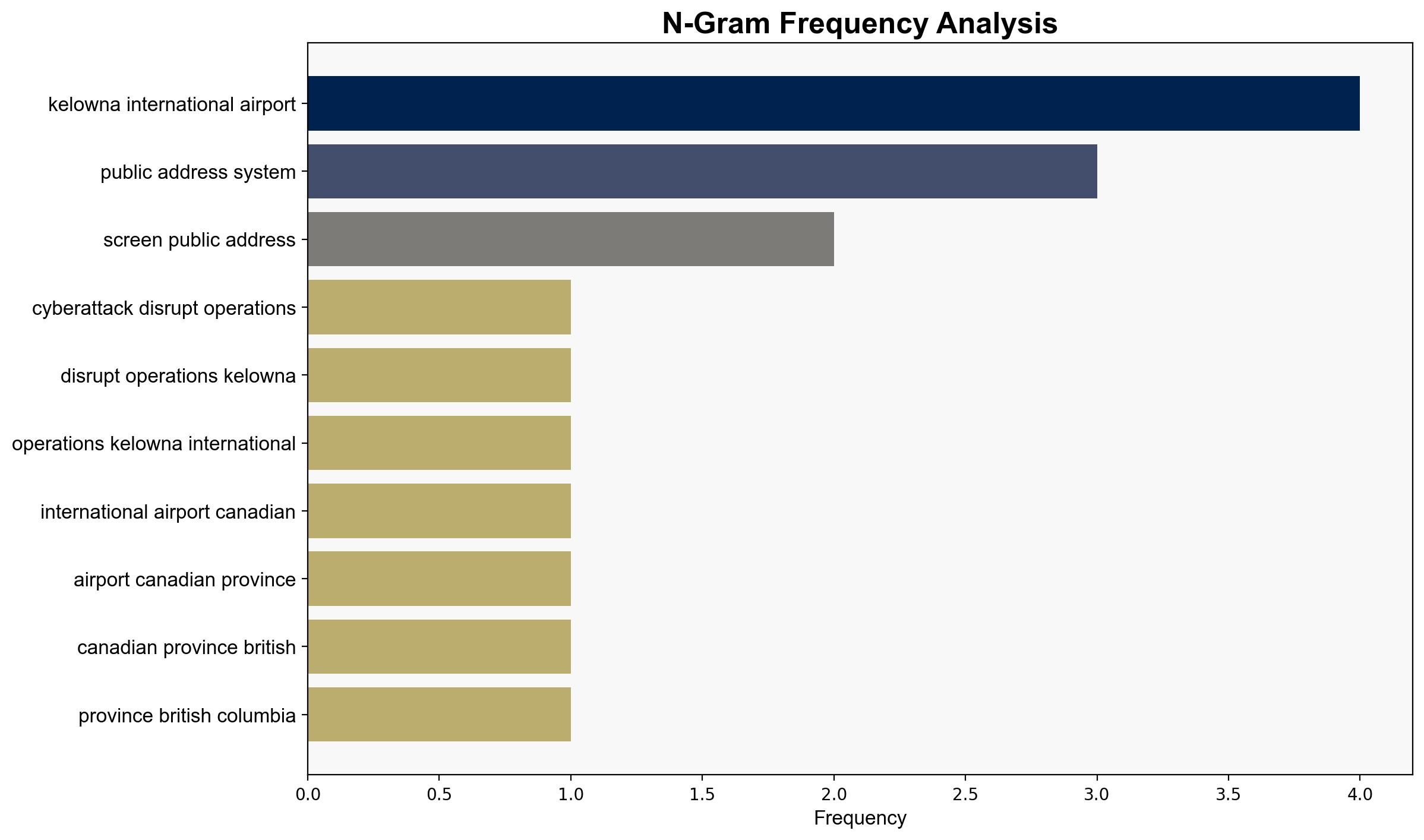Hackers breach Canadian airport delay flights with pro-Hamas propaganda – Israelnationalnews.com
Published on: 2025-10-16
Intelligence Report: Hackers breach Canadian airport delay flights with pro-Hamas propaganda – Israelnationalnews.com
1. BLUF (Bottom Line Up Front)
The cyberattack on Kelowna International Airport appears to be a politically motivated act aimed at spreading pro-Hamas propaganda. The most supported hypothesis is that this was orchestrated by a group with ideological motivations rather than a state-sponsored entity. Confidence level: Moderate. Recommended action: Enhance cybersecurity measures at critical infrastructure and increase intelligence sharing with international partners to identify and mitigate similar threats.
2. Competing Hypotheses
1. **Ideologically Motivated Group Hypothesis**: The attack was carried out by a non-state actor or group sympathetic to Hamas, aiming to spread propaganda and disrupt operations as a form of protest or intimidation.
2. **State-Sponsored Cyber Operation Hypothesis**: The breach was part of a broader state-sponsored cyber operation intended to destabilize Canadian infrastructure and test national security responses.
Structured Analytic Technique: **Analysis of Competing Hypotheses (ACH) 2.0**
– **Ideologically Motivated Group Hypothesis**: Supported by the nature of the propaganda and the lack of sophisticated tactics typically associated with state-sponsored operations.
– **State-Sponsored Cyber Operation Hypothesis**: Less supported due to the overt and unsophisticated nature of the attack, which lacks the subtlety and strategic objectives typical of state actors.
3. Key Assumptions and Red Flags
– **Assumptions**: It is assumed that the attackers’ primary goal was propaganda dissemination rather than causing physical harm or significant economic disruption.
– **Red Flags**: The rapid response and containment suggest either a limited scope of the attack or potential insider knowledge. The absence of a claim of responsibility raises questions about the attackers’ identity and objectives.
– **Blind Spots**: Potential underestimation of the attackers’ capabilities or future intentions if they are indeed a non-state actor.
4. Implications and Strategic Risks
The incident highlights vulnerabilities in critical infrastructure, particularly in the aviation sector. There is a risk of copycat attacks or escalation if the perpetrators remain unidentified and unpunished. The psychological impact on public safety perceptions could lead to increased security measures and potential economic repercussions for the aviation industry.
5. Recommendations and Outlook
- **Mitigation**: Implement enhanced cybersecurity protocols at airports and other critical infrastructure, focusing on both preventive and responsive measures.
- **Intelligence Sharing**: Strengthen collaboration with international cybersecurity agencies to track and counteract similar threats.
- **Scenario Projections**:
– **Best Case**: Quick identification and apprehension of perpetrators, leading to deterrence of future attacks.
– **Worst Case**: Escalation of cyberattacks targeting multiple sectors, causing widespread disruption.
– **Most Likely**: Continued low-level cyber threats requiring ongoing vigilance and adaptive security measures.
6. Key Individuals and Entities
– Sam Samaddar (Kelowna Airport CEO)
– Royal Canadian Mounted Police (RCMP)
– Canadian Centre for Cyber Security
– Centre for Israel and Jewish Affairs (CIJA)
– B’nai Brith Canada
7. Thematic Tags
national security threats, cybersecurity, counter-terrorism, regional focus




